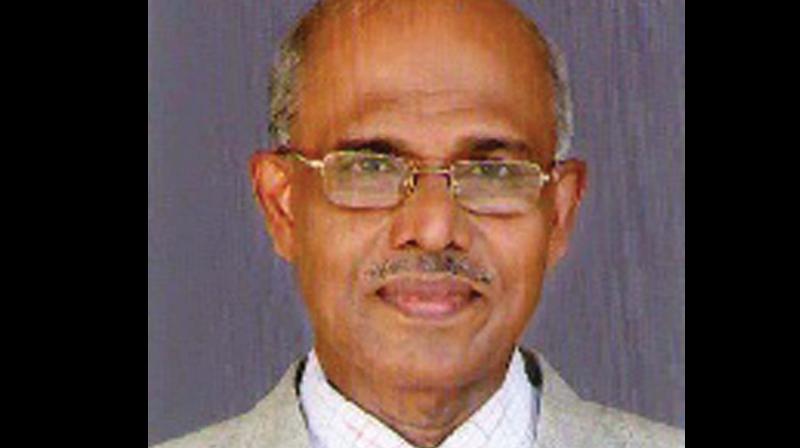Panel asks self-financing colleges to set up education fund
Appointments and payment of teachers should be on par with those in Govt colleges.

Thiruvananthapuram: The state cabinet on Tuesday approved the report of the Justice K.K. Denesan commission on self-financing colleges which among others recommended the setting up of a scholarship fund for students of lower income group in self-financing colleges. The capital of the fund should be collected as single time deposit from all the 989 self financing institutions in different sectors in the state and a consortium of vice-chancellors should operate it, the report said. Apart from Justice (rtd) Denesan, educationist R.V.G. Menon and former Calicut University vice-chancellor K.K.N. Kurup were the members of the commission.
The commission recommended introduction of four-year integrated degree course with B.Ed, as suggested by the National Council for Teacher Education (NCTE). "There should be an amendment in the law for this purpose," it said. Among its suggestions are the formation of district-level ombdusman to solve issues related to internal assessment in self-financing colleges, conduct of college union elections as per the recommendation of the Lyngdoh committee report and the permission for students and teachers to form unions. Posts in self-financing colleges should be fixed based on student strength as in the case of aided institutions and the salaries be fixed on par with aided institutions, it said.
The commission wanted the government to prohibit by law the practice of the managements to collect fees in advance for future semesters and that of withholding the original certificates of students. Exemptions and concessions granted to government and aided colleges in the matter of electricity charges, property tax etc shall be extended to self-financing colleges also, the commission recommended.
Strict enforcement of law mooted
The K.K. Denesan Commission is of the opinion that strict enforcement of existing laws instead of coming out with new ones that can regulate educational institutions in the self-financing sector. It is not the absence of legislation but the failure to implement them that led to the lack of proper control over the sector, it said. Enactment of a new legislation would be a tricky affair as it should be ensured that it did not violate the provisions of the existing law, according to a member of the panel.
“This was one of the reasons why the committee was not keen on introducing a new law for controlling the self-financing colleges in the state. Instead, the committee recommended strict adherence of the provisions of the existing laws to put proper control over the self financing colleges,” the member said. Education is on the concurrent list of the constitution, and hence a state law would not prevail against a central law, a member of the committee pointed out. “There are chances that the act enacted by the state would not stand the test of law. The same was the reason for the previous laws passed by the state failing in the court of law,” the member said.
There are several laws of the AICTE that can be used to control self- financing engineering colleges. The need of the hour is to effectively implement such laws rather than going for a new law, said the member. Law of the universities also have provisions to control self-financing colleges. “The university laws are very clear on the affiliation and academic jurisdiction of various unaided colleges,” said the member. They also govern rules on the appointment and pay conditions of teachers. “The problem lies with their lackadaisical implementation,” the member pointed out. The university laws have provisions for including teachers in the academic bodies. “However, teachers of self-financing colleges are not given representation in them,” the member said.

